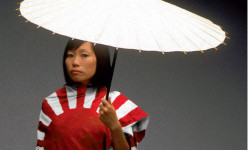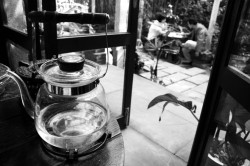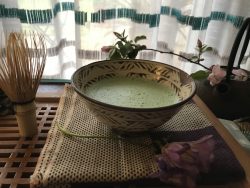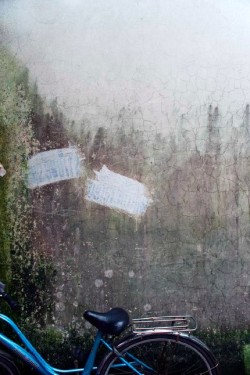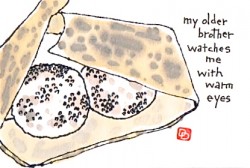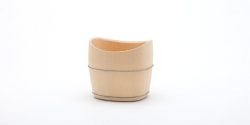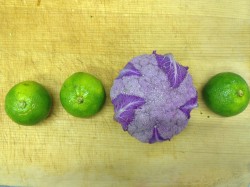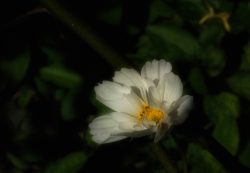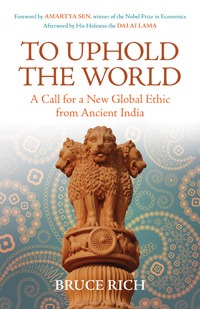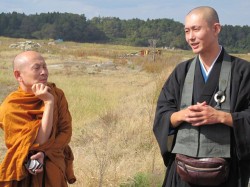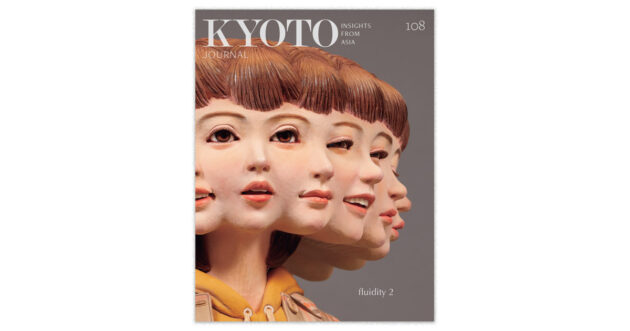Mishima: Creation, Love, Patriotism, Death
Persona is like a flashcard pastiche, much of it based on interviews and private correspondence fused with the historical events through which Mishima moved. Mishima’s lifelong obsession with death and suicide and his sensational death by seppuku at forty-five, haunts the biography.
Read MoreArticle 9 and Japan’s Future
Article 9 can also be seen as a gift to humanity, simply denouncing war. Simply doing that.
Read MoreTeahouse Renaissance in Taipei
Wistaria was the first intellectual style teahouse, and created a quiet, clean place to focus on drinking tea. Outside the wood and paper walls of the two-story Japanese house was a garden with bamboo and a koi pond.
Read MoreThe Name Game
For the Chinese understand that without nature, man is inherently insignificant. It is therefore understandable that of all of the thousands of teas in China, none were specifically named after a person, not even after any of the many emperors who were often responsible for naming them.
Read MoreEdo Expansion in Hokkaido
The sheer lack of general information in English on the indigenous peoples of Hokkaido (formerly known as Ezo) and this book’s focus on two endangered intangible aspects of human survival – ecology and culture – attracted me. But this is no travelogue of pretty pictures and nifty rituals.
Read MoreTea Beyond Japan: Chanoyu in the Diaspora
I am not your typical or natural tea student: a left-handed, cross-country skiing, Jewish feminist. Studying chanoyu for the past 24 years has been both challenging and intriguing for all those reasons. I have been fortunate to find a great teacher who can teach me. I have been encouraged by her to make the practice my own within her very formal teaching.
Read MoreMuch Ado About Matcha: Appreciating the Taste of Powdered Green Tea
If you think that chanoyu, the Japanese tea ritual, is primarily about enjoying the flavor of matcha … I have a bridge to sell you! Let’s call it the ultimate Japanese “urban myth”. Making matcha – mixing of hot water and a tiny bit of carefully selected, hand-picked young green tea leaves in powdered form – is merely the premise for a refined social gathering.
Read MoreThe Korean Way of Tea
Korea has had a “Way” of tea but it hasn’t been widely seen, much less described or studied by foreigners. This new guidebook full of color illustrations, created by Brother Anthony and Hong Kyeong-Hee is a welcome edition to one’s tea or Korean culture library.
Read MoreMekong River
Today’s flowers let me inside
into their vase-shaped bodies
Today, I swim this river
with its fish and turtles
and crocodiles…
Freedom Within Bounds: A Conversation with Donald Richie
Unlike many writers on Japan, Donald Richie advances no social theories. By portraying Japanese as individuals, and by doing so with insight and often with sympathy, Richie gives the lie to conventional notions of uniformity.
Read MoreThe Enlightening of Aikido: Jacques Payet on training, practice and teaching
“Through time the student would become a better person; one who is more aware of weak points, more courageous and more honest, through a body-to-body and heart-to-heart experience…”
Read More“The Fortunate Earth is Happy”
As I sat down to read On Freedom: Spirit, Art, and State, one of the first thoughts I had was how difficult it is to peg a term as loaded as “Freedom.” At about the same moment as I had this thought, the chorus of the jaunty Calypso song on my stereo sang out, “Always remember somebody suffering more than you.
Read MoreIn Memorium: David Jenkins
David Jenkins, a longterm resident of Kyoto, translated medieval Japanese poetry (with his co-translator, Yasuhiko Moriguchi) — and made it timeless. He passed away on April 10th, 2000, surrounded by fully-blooming sakura; is still missed by friends and colleagues here at KJ.
Read MoreDog Boy
Today I start school. Mother pulls back covers, flings aside the rumpled futons, prods us with rough fingers. She wrenches my brother from sleep. I watch through slitted eyes. Today I start school
Read MoreNakagawa Shuji: Oke Maker
When Nakagawa Shuji’s grandfather, Kameiichi, turned ten years old, he went to work at Tarugen. This famed maker of oke (wooden pails or buckets) and barrels, had been established in Kyoto during the waning years of the Edo period (1603-1868), and was to become Kameiichi’s workplace for the next 40 years. In the process, Kameiichi…
Read MoreThe Magic Mirror Maker
When light is directed onto the face of sacred magic mirror, or makkyo, and reflected to a flat surface, an image magically appears. Kyoto Journal sits down with the man rumored to be the last remaining makkyo maker in the world — Yamamoto Akihisa.
Read MoreThe Wisdom of Shōjin Cooking
Shōjin ryōri is rooted in the concept that the earth and body are inseparable. It is only through attaining a perfect symbiosis with the land that we can truly reap the benefits of the earth.
Read MoreThe Pilgrim Journey: A Myth Of Buddha
In 1973 I went looking for a Buddha to come to my, and even maybe our, rescue. I wanted to actually meet the guy, hear his voice…Of course, I didn’t find him. I found me looking for him.
Read MoreAshoka’s Dream
Years after an unexpected encounter with the remarkable reign of Emperor Ashoka Maurya, Bruce Rich has written an insightful meditation on the relevance of the ancient Indian ruler to our own age of global discontent.
Read MoreNuclear Japan and the Four Noble Truths
Despite considerable inertia in a religion well known for its conservatism, the protagonists in this book are seizing this opportunity to apply Buddhist values in opposition to nuclear power, and also to respond to the crisis in ways that invest Buddhist values with new relevance to contemporary society.
Read MoreThe Rhetoric of Life: S. Brian Willson’s Blood on the Tracks
Willson and two other men were sitting on the tracks in a public right-of-way to protest the shipment of arms…Willson’s protest at the Concord Naval Weapon’s Station was textbook civil disobedience. He had read his Martin Luther King, Jr., his Gandhi, and his Thoreau. Willson had fully expected the train to stop.
Read More

